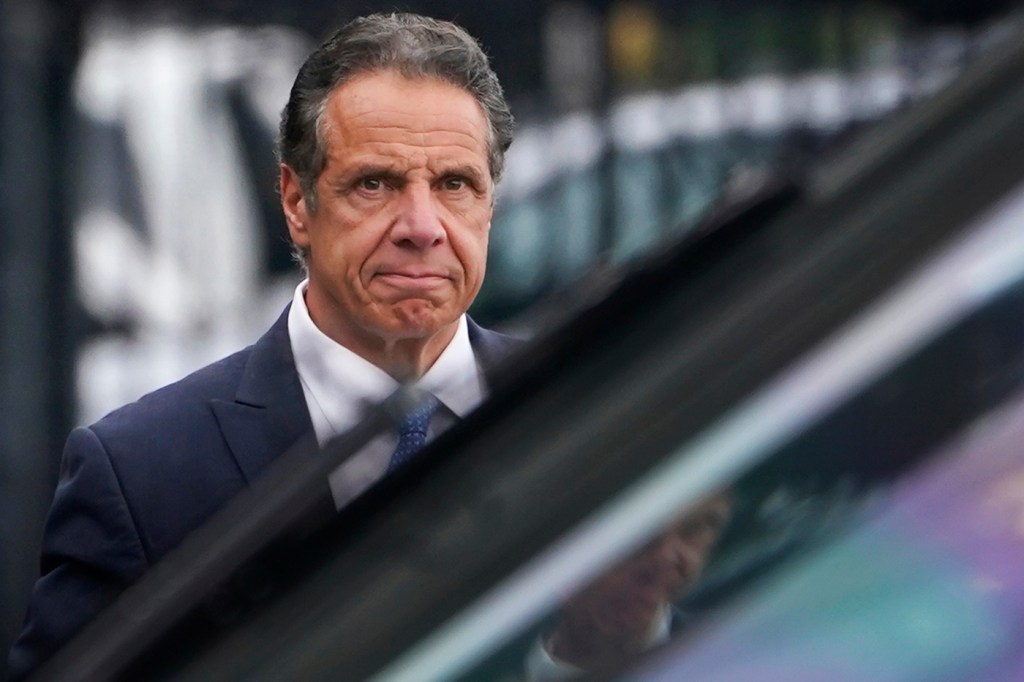Why resigning won’t end Cuomo’s problems

New York Gov. Andrew Cuomo said he will resign from office in two weeks under threat of an impeachment trial for the alleged sexual harassment of 11 women. His legal problems, however, have only now begun, according to Northeastern law professors Martha Davis and Rose Zoltek-Jick.
“This story is only the beginning,” says Zoltek-Jick. “Don’t don’t expect an easy resolution or a quick resolution to any of this. The wheels of justice do not work quickly.”
An independent investigation overseen by New York State Attorney General Letitia James concluded that Cuomo engaged in unwanted touching and made inappropriate comments, a violation of state and federal laws. The 165-page report also found that Cuomo and his aides retaliated against at least one of the women for going public with her complaints.
News@Northeastern spoke to Davis and Zoltek-Jick for their take on what happens now.
Their comments have been edited for brevity and clarity.

Law professors Rose Zoltek-Jick (left) and Martha Davis (right) say civil and criminal charges against Cuomo will likely continue, even after he steps down as governor of New York. Both credit the bravery of the women who came forward under pressure and retaliation for resolving the political scandal. Courtesy photos.
By stepping down, does that end Cuomo’s legal problems?
ZOLTEK-JICK: Resignation only affects the impeachment issue. It does not in any way put to rest any of the other civil or criminal cases that may arise out of the things we have learned in the attorney general’s report. If anything, she’s done the initial digging that now the district attorney for criminal issues will have to corroborate and to speak to those people yet again. They cannot rely on her report. They can use it as leads, but they can’t use those statements necessarily as proof without them doing their own independent investigation. This story is only the beginning. Don’t expect an easy resolution or a quick resolution to any of this. The wheels of justice do not work quickly.
DAVIS:Some of the things that were alleged would not rise to the level of criminal activity, but things like unwanted touching and groping could be the basis for criminal charges. As to civil claims, New York state law is quite liberal in what has to be established. Here it seems very clear that there was a severe and pervasive atmosphere of sexual harassment, which would meet the federal standard and so people could sue for workplace sexual harassment and for retaliation in some cases. So you’ve got the potential for federal lawsuits and the potential for state lawsuits.
Could Cuomo simply claim executive immunity?
DAVIS: I suppose the governor would argue that he has some kind of immunity.. Title VII does not recognize qualified immunity for state actors. However, if suits are brought under other civil rights statutes, that will likely be an issue.
A member of the New York state legislature says that the impeachment process should continue in spite of the resignation. What would that accomplish?
ZOLTEK-JICK: That’s a really interesting issue. I would think that there still is a viable case for impeachment, even post-resignation, but the remedy to get rid of the governor would no longer be operative.
Just like in the Trump impeachment cases, if one of the consequences of impeachment is that the person can no longer run for office ever again, then there would be a reason for impeachment over and above resignation.
How might workplaces rethink their harassment training and their policies as a result of this case?
DAVIS: One thing you saw here was that the policies that they had in place were perfectly sound, but that when it came to it, the people who were close to the governor who were receiving these reports weren’t following the policies. Instead, they were trying to protect their boss.
One thing to think about then is different kinds of reporting structures so that people are able to go directly to an investigator rather than going to their boss who may be the harasser. So one thing that all employers should be thinking about now, going back and looking at their policies and seeing whether they’re actually workable.
Here you had people who were not following the rules so maybe there needs to be repercussions for them as well, not just for the governor.
What did you find most striking about the allegations against Cuomo?
ZOLTEK-JICK: The culture of silence, and the culture of enabling that many people have known for a very long time, and that they had to ignore, silence, or excuse his behavior. While we cannot take the allegations as truth, the number of them and the details of them seem to corroborate one to the other. [Cuomo] and many people like him almost regarded sexual access as a perk of the job, and that’s what #MeToo has exposed. It’s really what Anita Hill exposed. We are now in a moment that is Anita Hill’s moment.
DAVIS: One thing I want to make sure that we underscore in the Cuomo case is the fact that women started coming forward. To put yourself out there like that against such a powerful person in New York takes a lot of bravery. The fact that they did that is partly the result of other women doing it in the past and holding people accountable. It creates the possibility of people feeling that they can come forward and be taken seriously.
For media inquiries, please contact media@northeastern.edu.





